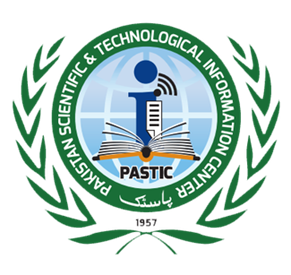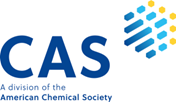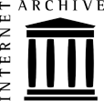The Impact of Professional Envy on Core Competencies and Institutional Efficiency Among Undergraduate Medical Faculty
Impact of Faculty Envy on Core Competencies and Institutional Efficiency
DOI:
https://doi.org/10.69750/dmls.02.02.0110Keywords:
Professional envy, Medical faculty, Undergraduate medical education, Academic collaboration, Job satisfaction, Faculty development, Organizational behaviorAbstract
Background: The role of professional envy as a primary emotional distress that increases year after year and negatively affects workplace dynamics, collaboration, and overall organizational performance is increasingly recognized. In environments as competitive as undergraduate medical education, envy may substantially degrade critical faculty competencies that prevent institutional effectiveness and educational outcomes.
Objectives: In order to systematically address the relationship professional envy has with undergraduate medical faculty competency, specifically, teaching effectiveness, academic collaboration, motivation for professional development, mentorship, research engagement, and job satisfaction.
Methods: A cross-sectional survey-based observational study was done between 2023 to March 2024 at Rashid Latif Khan University and its affiliated colleges (Rashid Latif Medical College and Rashid Latif Khan University Medical College), Lahore, Pakistan. An electronic questionnaire surveying all eligible medical faculty members was distributed a structured, validated, closed-ended questionnaire concerning professional envy, and its perceived impact. Statistically, chi-square tests were done using data from 158 respondents with a p < 0.05 significance threshold.
Results: Out of 158 participants, professional envy most significantly affected academic collaboration (63.6%, p<0.0001), motivation for faculty development (60.4%, p=0.0002), and interaction with medical students (58.9%, p=0.0001). Workplace performance (57.2%, p=0.0004), overall job satisfaction (55.8%, p=0.0004), mentoring of junior faculty (54.6%, p=0.011), and research engagement (54.5%, p=0.019) were also significantly compromised. Reduction in teaching hours was the least impacted competency (23.5%, p=0.467).
Conclusion: Professional envy significantly undermines critical competencies of undergraduate medical faculty, particularly collaboration and motivation for professional growth, negatively affecting institutional productivity and educational quality. Targeted institutional policies and structured faculty development programs are urgently recommended to mitigate professional envy and promote a supportive, collaborative academic environment.
Downloads
References
Shum C. The recursive relationship between abusive supervision and service performance. J Hosp Tour Insights. 2021;4(1):18-34. doi:10.1108/JHTI-03-2020-0032
Ben-Ze’ev A. Jealousy and romantic love. In: Hart SL, Legerstee M, editors. Handbook of Jealousy. Chichester (UK): Wiley-Blackwell; 2010. p. 40-54. doi:10.2466/pr0.1986.58.3.885
Mujcic R, Oswald AJ. Is envy harmful to a society’s psychological health and well-being? A longitudinal study of 18,000 adults. Soc Sci Med. 2018;198:103-11. doi:10.1016/j.socscimed.2017.12.030
Thiel CE, Bonner J, Bush JT, Welsh DT, Pati R. Rationalize or reappraise? How envy and cognitive reappraisal shape unethical contagion. Pers Psychol. 2021;74(2):237-63. doi:10.1111/peps.12387
Molenaar WM, Zanting A, van Beukelen P, de Grave W, Baane JA, Bustraan JA, et al. A framework of teaching competencies across the medical education continuum. Med Teach. 2009;31(5):390-6. doi:10.1080/01421590902845881
Koopman J, Lin SH, Lennard AC, Matta FK, Johnson RE. My coworkers are treated more fairly than me! A self-regulatory perspective on justice and social comparisons. Acad Manag J. 2020;63(3):857-80. doi:10.5465/amj.2016.0586
Lee K, Duffy MK. A functional model of workplace envy and job performance: When do employees capitalize on envy by learning from envied targets? Acad Manag J. 2019;62(4):1085-110. doi:10.5465/amj.2016.1202
Deuling JK, Burns LR. Workplace jealousy: its causes, effects and management in an organization. J Organ Behav. 2023;—:223-45. doi:10.1177/08863680122098298
West AM. Jealousy at work and understanding its impact on collaboration and performance. Harv Bus Rev. 2023. Available from: https://hbr.org/. doi:10.5465/amr.2016.0299
Iyer M, Way D, MacDowell D, Overholser B, Jagsi R, Spector N. Disrupting faculty-on-faculty bullying in academic medicine: an innovative workshop. MedEdPORTAL. 2023;19:11352. doi:10.15766/mep_2374-8265.11352
Bilotserkivska Y, Mostova T, Shaida OH. Features of the relationship between emotional burnout and jealousy among employees of higher education institutions. Naukov Vij Sivershchyny Ser Osvita. 2024;1:40-6. doi:10.32755/sjeducation.2024.01.040
Rasheed MI, Weng Q, Umrani WA, Moin MF. Abusive supervision and career adaptability: the role of self-efficacy and coworker support. Hum Perform. 2021;34(4):239-56. doi:10.1080/08959285.2021.1928134
Marescaux E, De Winne S, Rofcanin Y. Co-worker reactions to i-deals through the lens of social comparison: the role of fairness and emotions. Hum Relat. 2021;74(3):329-53. doi:10.1177/0018726719884103
Wang YD, Sung WC. Predictors of organizational citizenship behavior: ethical leadership and workplace jealousy. J Bus Ethics. 2016;135(1):117-28. doi:10.1007/s10551-014-2480-5
Kim SK, Lee JS. The effect of work jealousy as a moderator on the relationship between leader–member exchange and counterproductive work behavior/organizational citizenship behavior. J Korea Contents Assoc. 2021;21(8):537-45.
Fapohunda T. Organizational envy and organizational citizenship behavior: the mediating role of leader-member exchange. J Employ Relat Hum Resour Manag. 2022;3(1):278-95. doi:10.36108/ljerhrm/2202.03.0112
Özdemir S. Kıskançlık olgusu ve akademik örgütlere yansıması. Suleyman Demirel Univ Vizyoner Derg. 2021;12(30):652-76. doi:10.21076/vizyoner.806859
Kumar M, Kumari A, Sharma K. Arcane language of human emotions: envy and jealousy in academia. Natl J Community Med. 2022;13(9):669-71. doi:10.55489/njcm.130920222197
Nemr MAA, Liu Y. The impact of ethical leadership on organizational citizenship behaviors: moderating role of organizational cynicism. Cogent Bus Manag. 2021;8(1):1865860. doi:10.1080/23311975.2020.1865860
Kahya C, Durak G. Workplace jealousy and envy on organizational citizenship behavior: a study on healthcare organization. J Soc Humanit Adm Sci. 2022;8(58):1499-504. doi:10.29228/JOSHAS.66140






















